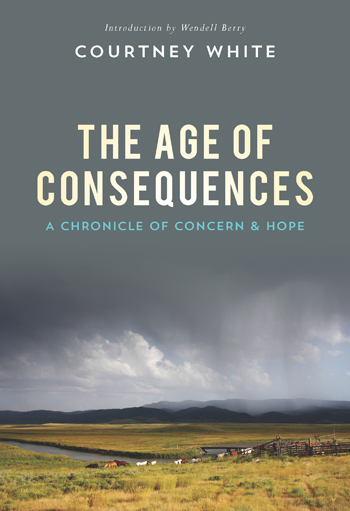We live in what sustainability pioneer Wes Jackson calls “the most important moment in human history,” meaning we live at a decisive moment of action. The various challenges confronting us are like a bright warning light shining in the dashboard of a speeding vehicle called Civilization, accompanied by an insistent and annoying buzzing sound, requiring immediate attention. I call this moment the Age of Consequences – a time when the worrying consequences of our hard partying over the past sixty years have begun to bite hard, raising difficult and anguished questions.
How do you explain to your children, for example, what we’ve done to the planet – to their planet? How do you explain to them not only our actions but our inaction as well? It’s not enough simply to say that adults behave in complex, confusing, and often contradictory ways because children today can see the warning light in Civilization’s dashboard for themselves. When they point, what do we say?
As a parent and as a writer, this anguished question created a strong desire to document the sequence of events that I was witnessing as well as attempt to explain our behavior as a society. Hopefully, we would manage to turn off the warning light in the dashboard, but if we did not I was certain that future generations would want an accounting of our behavior. So, in 2008 I began to write, blending headlines with narrative and observation, travel and research into chronological installments, crossing my fingers.
“Courtney White’s experience with the Quivira Coalition has made him master of two indispensable truths: people of different and apparently opposing interests can work together in good will for their mutual good; and, granted their good will and good work, a similar reciprocity can be made, in use, between humans and their land.” – Wendell Berry, from the Introduction.
“Courtney White has lived and worked at the radical center of collaborative conservation in the West for more than two decades, literally shaping dialogue and land stewardship in the region through his innovations. But with this book, Courtney demonstrates that his own essays on these concerns can rightfully take its place alongside Scott Russell Sanders, Peter Forbes, Richard Nelson, and Wendell Berry for its eloquence, depth, and lasting impact on the conservation movement.” – Gary Paul Nabhan
“White strikes a refreshing tome that will resonate with readers turned off by the superior or condescending attitudes of some environmentalist writers…Throughout, he balances abstract questions and idea with tangible life experiences…Readers will be engaged by his frank and thoughtful discussion of our modern environment.” – Kirkus Review





